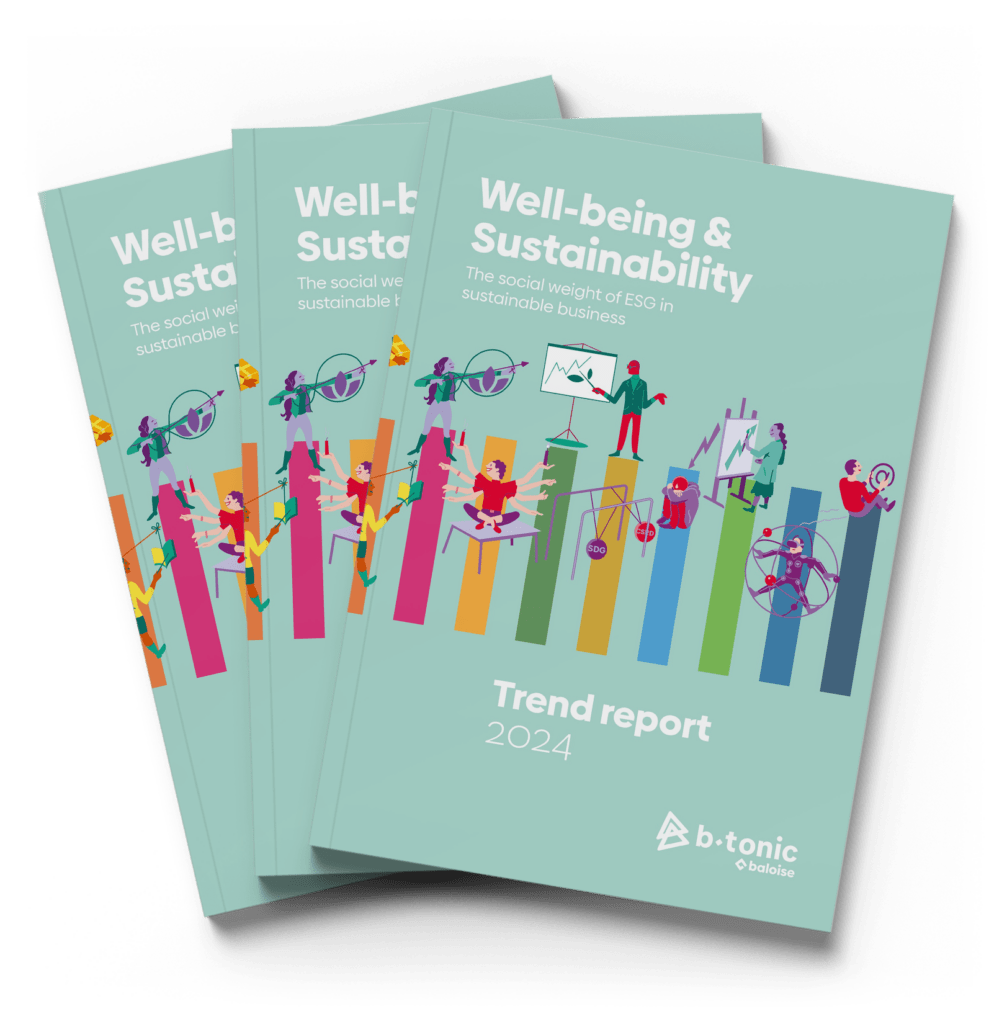If we don’t thoroughly tackle our well-being policy, our nation will face 600.000 long-term absentees by 2035. This was confirmed in the past week based on calculations done by the Federal Planning Bureau.
Today Belgium has half a million long-term absentees. And it is mostly mental health issues causing the large increase. According to the figures of RIZIV/INAMI, the number of long-term absentees increased between 2016 and 2020 due to burnout and depression with 38,72%: +41,50% for depression, +32,53% for burnout.
Our partner Federgon, the federation of HR service providers, recently wrote a paper ‘Uitvallen, opstaan en opnieuw aan de slag gaan‘, which is still a hot topic.
In addition, Federgon puts emphasis on the importance of a preventive and well though-out sustainable well-being policy. . A valuable instrument that can help with this is the People Sustainability Scan.

The paper provides an effective plan of action supported by four pillars:
1. Anticipating: A preventive well-being policy lies at the basis here.
Prevention is better and also cheaper than cure. In the first place, we need to do all we can to avoid that people are absent long-term. A societal focus on both mental and physical well-being of our population is within this framework essential. Government campaigns for more exercise, less smoking and healthy eating contribute largely to a better health. Also among young children there is more and more attention for the importance of not only physical, but also mental health. The focus on more preventive healthcare can in the long term result in less curative healthcare and thus contribute to fewer long-term unfit for work people.
2. Investing: Focus on customisation and ensure that as many people as possible find their way back to the job market
The non-medical cost of long-term unfitness for work is on average 50.000 euro a year. On average a person that is unfit for work long-term stays at home for 7,5 years. The figures of the IDEA Consult research show that there are no more excuses today not to invest in people who are ready to get back to work. As a society, we need to take on our responsibility and commit fully to reintegration. As every situation is different and each person starts from a different situation, custom work is required here. Additionally, an inclusive and personalised approach is, budgetarily speaking, realistic and an absolute necessity if we wish to reverse the rising trend.
3. Activating: Explore and facilitate work resumption, even if it is with another employer
It is important that all possible options regarding work resumption are considered when it comes to reintegration of long-term absentees. This means exploring the options both with the current and with other employers. The IDEA Consult research shows that there are financial hurdles in the case of work resumption, both for employers and for employees The challenges in the context of activation are thus two-fold: 1. Need for an open mind and the ability to consider work resumption with both the current and another employer. 2. Reducing the financial obstacles for both employers and employees and offering better insight into the financial side of work resumption.
4. Integrating: job market knowledge and medical expertise for the purpose of a return to the job market
The first step is informing and raising awareness of (practising) doctors about the additional value of work and about how in some cases work can be an asset in the healing process. Furthermore, a framework is needed that allows doctors to refer to suitable job market service providers that can offer an added value while guiding and reintegrating long-term absentees. HR service providers active in career guidance, job placement and/or outplacement, … can make a valuable contribution about the topic of work resumption.




